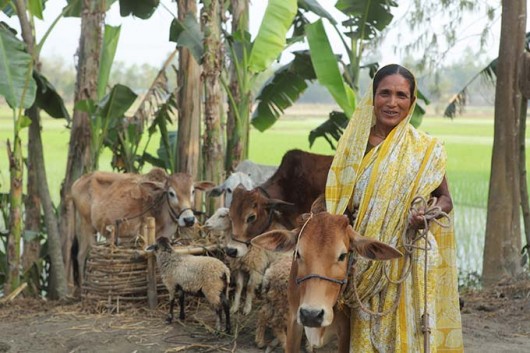In Favor of the Graduation Approach

A new study assessing the potential for BRAC’s graduation model found that the model was successful in improving the conditions for the “ultra-poor” in six different countries. This data strengthens arguments for teaching a man to fish rather than giving him the fish.
A recent Vox article argued in favor of the cash approach, in which individuals receive cash or assets directly. They argue that giving a man a fish directly is easier and more effective.
The author argued against supplementing those start-up funds or assets with training, citing the argument that policy-makers and organizations do not always know the best method to teach solutions or select the right intervention for specific communities.
Jeffrey Sachs’ unsuccessful Millennium Villages project, in which he invested $1.2 million to provide technology for rural villages, is cited as support for this argument.
However, the result from Sachs’ experiment could also imply that aid and development are different; aid being more cash-oriented and development being more graduation-oriented. Providing assets or cash directly is necessary and helpful, as shown by the success of organizations such as Heifer International and Oxfam.
Yet the wild success of BRAC both in Bangladesh and worldwide begs the question of why both approaches cannot be implemented on a situational basis. In Bangladesh, with two years of asset and cash transfer, skills training, and support, 95 percent of participants saw an increase in their economic welfare.
Trial models in Ethiopia, Ghana, Haiti, India, and Peru also saw sustained gains in economic welfare for participants one year after the completion of training, indicating that the graduation approach has been successful at creating long-term change and empowering communities.
As aid and development organizations work to reduce global poverty worldwide, and with the pressure of eliminating global poverty by 2030, it is essential for organizations to create and implement interventions that create long-term change for impoverished communities.
Hopefully, with this discussion underway, organizations can have more options from which they can style and implement interventions and continue their work to fight global poverty.
– Priscilla McCelvey
Sources: The Economist, Next Billion, Reason, Vox
Photo: Brac Blog
